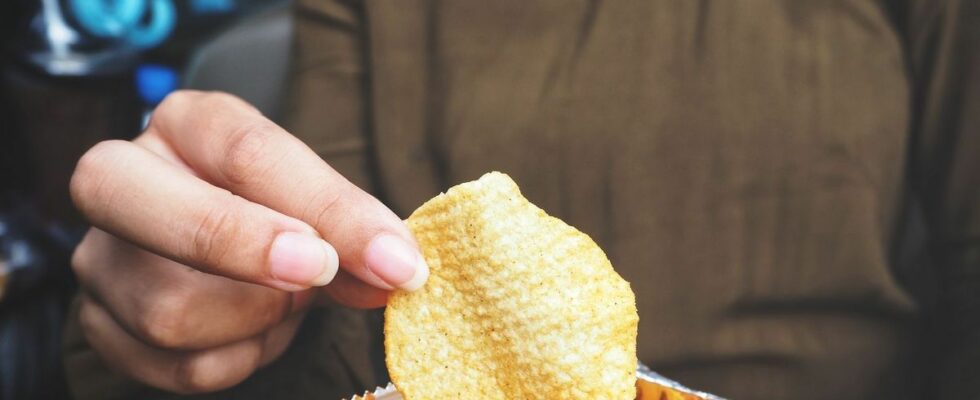Published on
Updated
Reading 2 min.
in collaboration with
Dr Gérald Kierzek (Medical Director)
Last September, a 14-year-old teenager died of cardiac arrest after taking part in the One chip challenge, with a very high level of pepper. Is this type of challenge so risky? Dr. Gérald Kierzek, emergency physician, answers us.
Sustaining the shock by eating a particularly spicy food, a potato chip in this case, has become commonplace on TikTok. As such, a new challenge called the One Chip Challenge quickly found its place on the network: it involves eating a unique chip, reserved for adults, with an extraordinary level of chili. With risks: according to USA Today, a teenager died of cardiac arrest during this challenge.
Several illnesses then death
Harris Wolobah was in fact a 14-year-old teenager from Massachusetts with no history, athletic and with no known allergies. Last September, at his school, he agreed to eat these “chips” handed to him by a friend. But his mother received a call from the nurse shortly after: Harris had passed out in the facility. Later, he lost consciousness again at home and was quickly taken to the emergency room. It was there that he died before the helpless eyes of his parents.
The Massachusetts Executive Office of Public Safety told USA TODAY on Thursday that the teen’s death was caused by a heart attack.as part of a recent ingestion of a food substance with a high concentration of capsaicin”. The young man also suffered from an enlarged heart and a congenital heart defect, the medical examiner noted. But it was the ingestion of the chips that caused his death.
Capsaicin increases heart rate
Is biting into this chip, beyond grimacing and feeling a certain burning of the tongue, dangerous?
This feeling comes from something called capsaicin. “This is the compound that gives this spicy character to chili peppers” recalls Dr. Gérald Kierzek emergency physician and medical director of Doctissimo.“It is also used in medicine for its analgesic properties, particularly in the treatment of peripheral neuropathic pain.”
But in high doses, can it “stop” a heart as it did for Harris?
“There is no cardiac contraindication” he tells us. “But there is probably a connection with chili: it increases the cardiac frequencythere blood pressure and therefore the work of the heart muscle. If you combine this with a malformation or even an unknown pathology, it can indeed lead you to a heart attack/infarction and cardiac arrest. ”
A challenge to avoid
On site, the Paqui company, which markets these spicy tortillas, has decided to withdraw its products from sale. Although its product “complies with food safety standards”she admits that the warning affixed to the product reserved for adults was not sufficiently followed by young consumers, which earned her several reports.
But that doesn’t solve anything: as we know, on the networks, a product can quickly be replaced by another of the same type, or even stronger.
Doctors say parents should better inform themselves and warn their children to stay away from similar challenges on social media. If you have digestion and breathing difficulties or chest pain after eating capsaicin, contact emergency services.
